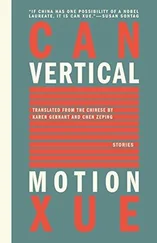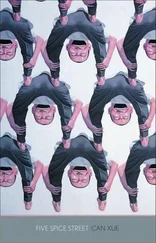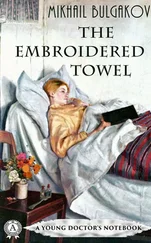Maybe this was nothing but a kind of torture. The Recorder had asked himself this question numerous times, and numerous times had failed to find the answer. But just at the moment when the passersby with dreams were leaving, the light of that dreamland that had never been described would make his body tremble all over. This trembling — the trembling itself — confirmed in him the existence of that image. So he named that image that had never been described nor had ever occurred clearly in his mind “the wind.” “The wind” always arose when the person with dreams was leaving. Now what he was expecting with his stretched-out neck was more than merely the dreamers. When they were leaving, he knew, that light would appear. He had begun to see this more and more clearly.
Then in the rainy season there came an old woman holding a huge umbrella. Her snow-white hair had been tousled by the wind. The eyeballs inside their deep, narrow sockets had no vision, yet she was not blind. She entered the shed and let the Recorder touch her ice-cold fingers, then she went on her way. It was on that day that the Recorder stopped writing down the descriptions of the dreamlands of the passersby. Nor did he stare down the road anymore. He was still waiting, however, and he seemed to know what he was waiting for. With the passing of time, that image of his had changed gradually into something less definite, and his hearing deteriorated daily. Very often when a passerby entered the shed, the Recorder was still in his reverie. Only one thing was clear: at a certain moment his heart would throb in response to that invisible light and that empty image, and his blood would surge like a herd of running horses.
Once in a while there were still people stopping by his shed. The dreamlands they described had become more and more outrageous. Each one complained that the thing he had seen was indescribable. And because it was indescribable, they sometimes left, disheartened, in the middle of their account. The Recorder, understanding all this, held his black notebook and pen in his hands and pretended to be listening carefully. As a matter of fact, he did not record anything. When the person with the dream left, in his mind’s eye there still appeared the image that once had made him tremble, yet it had faded into a blankness with something like shadows swaying back and forth within it. He couldn’t confirm this, yet he was satisfied. Closing his notebook he sat on the floor for a break, and the instant of the break was sweet.
The following is a dialogue between the Recorder and a person reporting a dream:
DREAMER: What have I been talking about? What I have said is not even as much as one tenth of what I saw. That feeling could never occur again. Why can’t I describe it? It’s so disheartening! The wind is too strong here.
RECORDER: Uh-huh.
DREAMER: Whatever you have recorded here is all rubbish. Yet we still come to you because everybody knows you are the only person who records those things here. I really want to describe it. Please tell me — is it because I am not verbal?
RECORDER: What you’ve said is really interesting.
After the dreamers left, they never revealed to others the image that they had described to the Recorder, as if there were an unspoken agreement among them. After they had described their dreamlands to him, they felt they had left a piece of valuable property in his run-down shed. As a matter of fact, they seldom reflected on what they had described, yet they remembered making the description because that was their property. They paid no attention to whether or not the recorder had written anything in his notebook. What they did pay attention to was the very act of describing inside the shed. Although during their descriptions they were also continually grumbling and complaining, as if impatient or totally bored, deep inside they were quite satisfied with themselves. Once they left that shed they felt they became mere ordinary people. They tended to consider the unique communication between themselves and the Recorder as a supreme secret. They also tended to see that black notebook as something that made them feel intimate and commited to something in their hearts.
Nobody had expected that the Recorder would abandon his black notebook, because it contained such a quantity of unique and strange dream images, and it was therefore considered by many people as the property of the many dreamers. But now he had thrown the notebook away, and he explained this only indifferently: “It flew away without wings.” And he refused to raise the issue again.
Random passersby continued to enter his run-down shed, As usual he sat on the floor, straight and solemn, listening to their descriptions without making a sound himself. The disappearance of the notebook hadn’t affected the unique communication between them. Among those random passersby were some who had visited him before and others who had never been there. Without mentioning it, they all experienced the benefit of not having the notebook because now they could talk about whatever they wanted without worrying. After they had arrived at the Recorder’s shed, every one of them would speak, whether for a long time or a short time. So they started talking, yet who could hear clearly what they were talking about? That was impossible. It was not until today — this is quite a few years after it happened — that we realized that those people had never said anything meaningful. Instead they were only pronouncing some syllables willy-nilly to pass the time. And the Recorder was not listening carefully but only pretended to pay attention. As a matter of fact, he was thinking of something else. It was certain that he was thinking of that blank image and waiting impatiently for its arrival. Yet he knew that one cannot rush this sort of thing. Therefore, he had to pretend to be listening to the dreams. It was with such purposeful procrastination that they passed the endless time, repeating the same thing again and again, patiently.
From the Recorder’s point of view, throwing away the notebook was, of course, perfect. Though it did have some drawbacks, however, one being that he was now more and more dependent on the dreamers. He had classified his life into several periods, according to the kind of dreamers who arrived. He no longer remembered how much time he had spent in the shed. In fact, his concept of time had completely disappeared. Whenever he was recalling certain events, he would think this way: “That’s the day when that dark, skinny-faced man arrived…” or “That afternoon when the woman with butterfly freckles arrived…” “That day when nobody stopped by…” or “That morning when the person came, then left without saying anything…” et cetera. Such classifications appeared very convenient, yet because fewer people were coming to him lately, his memory was deteriorating. This method of classification, as a result, embodied great vagueness and even error because it distorted sequence, and very often uncertainty would creep in. Fortunately, now he didn’t care that much about such things, and he had become increasingly casual.
If on one day more than two dreamers arrived, the Recorder would regard that day as a festival. When they had departed, he would still sit in the shed with his straight back and with his solemn expression. His whole body, including his heart, was trembling amidst the light that nobody, not even he himself, could see. Such an event was not common, and the Recorder knew it himself; therefore, he didn’t appear anxious. He also knew that the dreamers did not come of their own free will. The will that determined their arrival was in fact inside his mind. Now that he had stopped stretching out his neck to stare down the road, most of the time he felt calm. His only hint of impatience would occur at the moment when a dreamer arrived, because he already knew what the consequence would be. Afterward, he could be seen creeping about, shivering in the cold wind and blowing warm air onto his fingers, which were as swollen at the joints as little steamed buns, yet in his eyes there danced indescribable ecstasy.
Читать дальше












